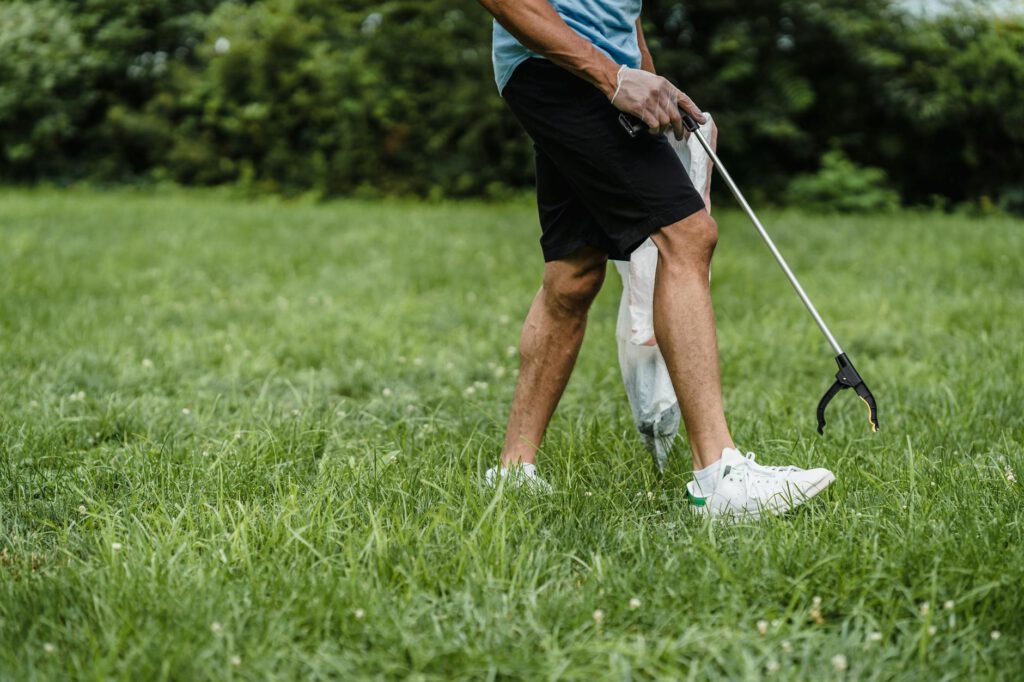****
Introduction
In today’s fast-paced digital world, electronic waste (e-waste) is piling up at an alarming rate. College campuses, in particular, are hotspots for discarded electronics—old laptops, smartphones, printers, and other gadgets that students and faculty no longer need. Instead of letting this e-waste end up in landfills, savvy entrepreneurs are turning it into a profitable side hustle.
This guide will walk you through how to start a $0 waste hustle by collecting and reselling campus e-waste for cash. You’ll learn where to find discarded electronics, how to refurbish them, where to sell them, and how to maximize profits—all while contributing to a more sustainable planet.
Why Campus E-Waste is a Goldmine
College campuses generate tons of e-waste every year. Students upgrade their devices, departments replace outdated equipment, and many electronics are simply abandoned at the end of the semester. Most of this e-waste is still functional or can be repaired with minimal effort.
By collecting and reselling these electronics, you can:
– Earn extra cash with little to no upfront investment.
– Help reduce environmental waste.
– Build valuable skills in tech repair and reselling.
– Create a scalable side hustle that can grow into a full-time business.
Subtopic 1: Where to Find Free E-Waste on Campus
1. Dorm Move-Out Days
At the end of each semester, students often discard electronics they no longer need. Check dumpsters, donation bins, and common areas near dorms for abandoned laptops, chargers, and small appliances.
2. University Surplus Sales
Many colleges sell off old equipment at surplus auctions. Attend these sales or check online listings for cheap or free electronics. Departments like IT, media labs, and engineering often dispose of outdated but still usable tech.
3. Campus Recycling Centers
Some universities have e-waste recycling programs. Reach out to sustainability offices or recycling centers to ask if they allow students to take discarded electronics.
4. Online Campus Groups
Join Facebook groups, subreddits, or student forums where people give away or sell old electronics for cheap. Posts like “Free electronics—must pick up” are common.
Subtopic 2: How to Assess and Refurbish E-Waste
Not all e-waste is worth reselling. Follow these steps to determine what’s salvageable:
Step 1: Test for Functionality
- Plug in devices to see if they power on.
- Check for visible damage (cracked screens, missing parts).
- Test ports, buttons, and battery life.
Step 2: Clean and Repair
- Wipe down devices with isopropyl alcohol.
- Replace broken components (batteries, keyboards, screens) if cost-effective.
- Factory reset laptops and phones to remove previous owners’ data.
Step 3: Upgrade When Possible
- Add RAM or an SSD to old laptops to increase resale value.
- Install free operating systems (Linux) on unusable Windows machines.
Subtopic 3: Where to Sell Refurbished Electronics
1. Online Marketplaces
- eBay – Great for selling individual parts or fully refurbished devices.
- Facebook Marketplace – Local buyers often look for cheap electronics.
- Craigslist – Ideal for quick, cash-based sales.
2. Buyback Programs
- Gazelle, Decluttr, or BuyBackWorld – These sites pay for used electronics, even if they’re damaged.
3. Local Repair Shops & Pawn Shops
Some stores buy used electronics in bulk. Call ahead to negotiate prices.
4. Student Buy/Sell Groups
Offer discounted prices to fellow students who need affordable tech.
Tools & Resources for E-Waste Hustlers
Essential Tools
- Screwdriver set (for disassembly)
- External hard drive (for data wiping)
- Multimeter (to test circuits)
- Cleaning supplies (compressed air, microfiber cloths)
Free Software for Refurbishing
- DBAN (secure data wiping)
- Linux OS (for reviving old PCs)
- Hirens BootCD (diagnostic and repair tools)
Educational Resources
- iFixit (free repair guides)
- YouTube channels (e.g., Louis Rossmann for Mac repairs)
FAQs About Campus E-Waste Reselling
1. Is it legal to take e-waste from campus dumpsters?
Most campuses consider discarded electronics as abandoned property, but always check local laws and university policies.
2. How much money can I make from this hustle?
Earnings vary, but a single refurbished laptop can sell for $50–$300. Bulk sales (like old phones) can add up quickly.
3. What if I don’t know how to repair electronics?
Start with easy fixes (cleaning, replacing batteries) and use free online guides to learn more advanced repairs.
4. How do I handle data security when reselling devices?
Always wipe devices using professional tools like DBAN or factory reset options to protect previous owners’ data.
Conclusion
Turning campus e-waste into cash is a smart, eco-friendly side hustle that requires zero upfront investment. By scouring dorms, surplus sales, and recycling centers, you can collect free electronics, refurbish them, and resell them for profit.
Not only does this hustle put money in your pocket, but it also helps reduce electronic waste—a win-win for students and the environment. Start small, refine your process, and scale up as you gain experience.
Ready to turn trash into cash? Grab a screwdriver, hit the campus dumpsters, and launch your $0 waste hustle today!

